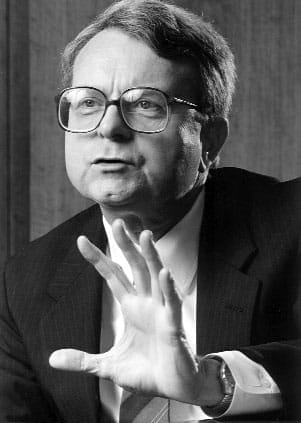 When Pitney Bowes hit some rough spots during the recession of 1981–1982, Chief Executive Officer, President, and Chairman George Harvey had a revelation. “Women were putting in more time than the men—and more consistently beating their sales quotas,” he told BusinessWeek. His view of the company’s workforce would never be the same.
When Pitney Bowes hit some rough spots during the recession of 1981–1982, Chief Executive Officer, President, and Chairman George Harvey had a revelation. “Women were putting in more time than the men—and more consistently beating their sales quotas,” he told BusinessWeek. His view of the company’s workforce would never be the same.
“This realization helped set off an effort to boost top female ranks,” BusinessWeek observed. “If I’m going to get the best talent, I’ve got to look at the entire population,” remarked Harvey. He joined Pitney Bowes, in 1957 and rose to the top leadership positions in 1981. The company is now one of the world’s largest providers of mailing, office, and logistics systems, as well as management and financial services. He aggressively recruited women and graduates from historically black universities, demanding women “get 35 percent of all new management jobs and promotions” and signing to the board several women and minorities.
In addition to transforming Pitney Bowes’s recruiting, Harvey was transforming the company’s business itself. Just two years after Harvey started as CEO in 1983, the company’s revenues exceeded $2 billion, a 50 percent increase from 1979. Bolstering sales were the introduction of new copiers, facsimile machines, and scales with microprocessors. By 1988, the company began to provide on-site staffing and mail-document management expertise. As the 1990s ensued, company revenue rose to more than $3 billion with Pitney Bowes introducing advanced technology in mailing and for small businesses, as well as corporate products.
Since retiring in 1996, Harvey, a former Wharton Overseer, has served as a trustee or director for numerous corporations and charities, including Merrill Lynch, Pfizer, McGraw Hill Inc., and United Way of America.

























